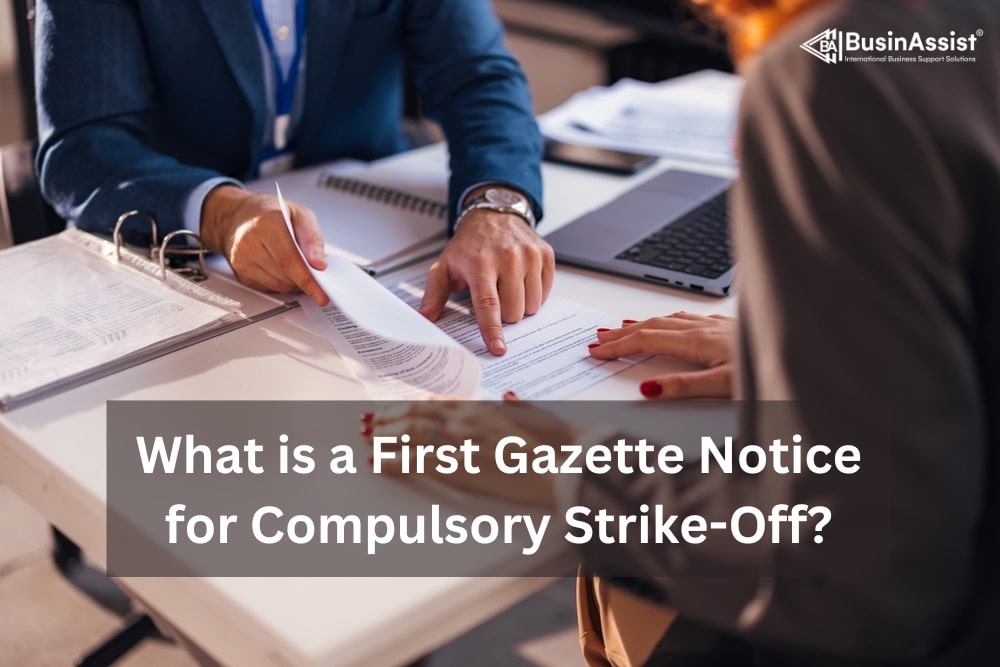Understanding the Process and Ramifications of Compulsory Strike Off Under Business Regulation
In the world of company law, the process and ramifications of obligatory strike off hold substantial weight for organizations and their directors. Understanding the intricacies of why companies face such a result, the thorough steps entailed in the strike off process, and the significant ramifications for all parties involved is important in navigating the complex landscape of corporate governance. As we delve into the factors behind compulsory strike offs, the ensuing treatments, and the succeeding effects, a clearer photo arises of the extensive influence it can carry entities and individuals alike.
Reasons for Compulsory Strike Off
Compulsory strike off under firm regulation is started by the regulative authorities for specific reasons connected to non-compliance or functional irregularities. The primary factor for a business to deal with compulsory strike off is the failing to submit annual returns or financial statements for an extended duration. This non-compliance suggests a lack of openness and adherence to regulative requirements, elevating worries regarding the business's financial wellness and responsibility.

Process of Strike Off
Given the governing authority's initiation of obligatory strike off for different reasons, recognizing the process of strike off is essential for firms dealing with potential dissolution under company legislation. The process typically starts with the regulatory authority sending out notices to the company's authorized office address, educating them of the approaching strike off. It is important for the company to deal with any kind of impressive issues, such as submitting overdue papers or settling superior fees, within the defined timeframe to prevent dissolution.

Implications for Firms
What are the ramifications for business facing required strike off under firm regulation? Companies dealing with compulsory strike off may run into several considerable effects. Firstly, the company ceases to lawfully exist, leading to the loss of its company status and the going along with protections and benefits. This can result in the failure to get in right into agreements, conduct business, or pursue lawsuits in the business's name.
Moreover, the company's assets at the time of strike off become building of the state, which can bring about economic losses for creditors and investors. Shareholders might shed their financial investments, while financial institutions might have a hard time to recuperate any exceptional debts owed to them by the struck-off company.
Additionally, supervisors of the company might deal with disqualification from holding comparable settings in various other business for a specified duration (first gazette notice). This can tarnish their specialist track record and restrict their future service opportunities
Repercussions for Directors
Encountering compulsory strike off under business legislation can have extreme implications for supervisors, impacting their future roles in other companies and possibly tainting their professional standing. Directors of a firm encountering obligatory strike off may find it testing to protect directorial positions in other business in the future. Overall, the effects of obligatory strike off for directors expand past the particular firm in concern, impacting their job potential customers and professional credibility in the lengthy term.
Preventing Compulsory Strike Off

Conclusion
In conclusion, understanding the procedure and effects of required strike off under firm legislation is necessary for business and directors to ensure conformity with regulations. By understanding the factors for strike off, the procedure included, and the repercussions for all parties entailed, firms can take steps to avoid being subject to required strike off. It is necessary what is compulsory strike off for supervisors to be proactive in keeping correct records and meeting legal responsibilities to stop the threat of strike off.
Given the regulatory authority's initiation of required strike off for different reasons, recognizing the process of strike off is critical for companies encountering prospective dissolution under firm legislation.What are the ramifications for firms facing required strike off under business law?Dealing with compulsory strike off under firm law can have serious implications for directors, influencing their future functions in various other business and possibly tainting their specialist standing. Directors of a firm facing required strike off may discover it testing to protect directorial placements in other firms in the future.In conclusion, comprehending the procedure and implications of mandatory strike off under firm law is vital for companies and supervisors to make certain compliance with policies.